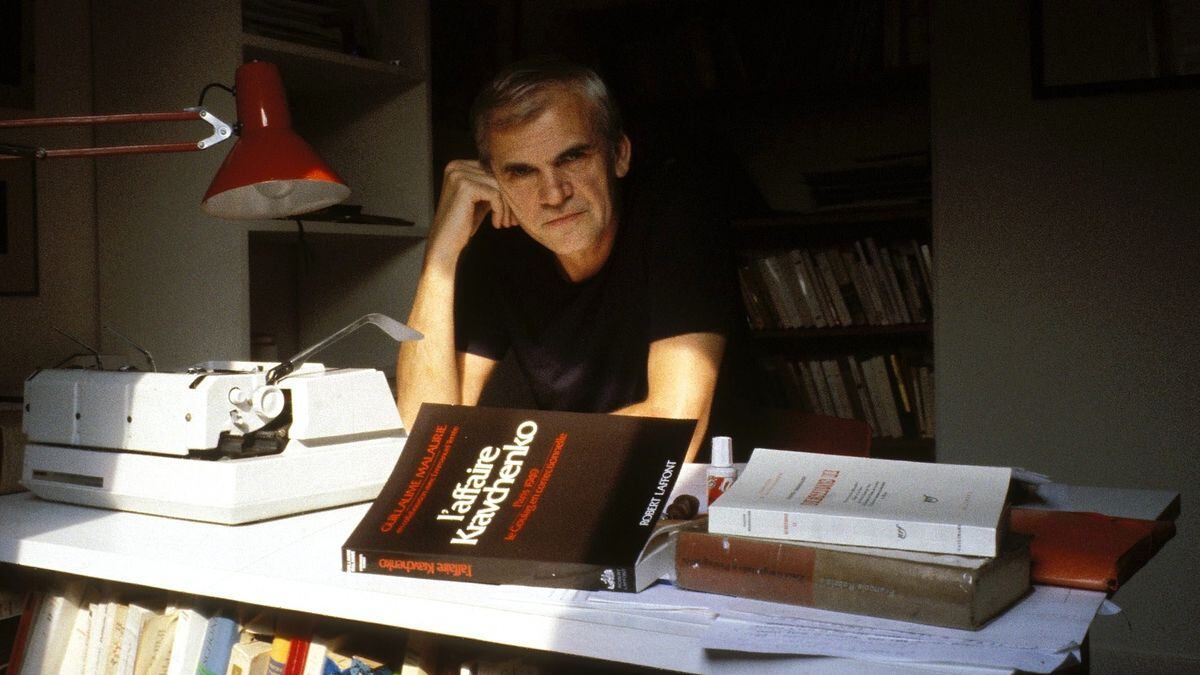Milan Kundera, the author of classic works such as The Unbearable Lightness of Being, has died in Paris at the age of 94, Czech public television has reported. The writer of Czech origin, naturalized French, was born in Brno on April 1, 1929 in a wealthy family. The spokeswoman for the Milan Kundera Library in his hometown, Anna Mrazova, confirmed to Agence France Presse: "Sadly, I confirm that he died yesterday [Tuesday] in Paris after a long illness." The son of an important pianist and musicologist, Ludvik Kundera, he studied music as a child, but gradually turned his interest towards writing. He taught literature at the Academy of Music and Dramatic Art in Prague from 1952. Kundera joined the Communist Party in 1948, but was expelled in 1950 and readmitted again in 1956. He remained a militant until 1970.
A fundamental novelist to understand the twentieth century, eternal candidate for the Nobel, Kundera was also a playwright, essayist and poet. His work, like his life, was marked by dictatorship and exile. In fact, at the end of his career he renounced his native language and wrote in French.
An article published in a Czech magazine in 2008 accused him of having collaborated with the police of his country in 1950 to denounce a person who because of that information was sentenced to 14 years of forced labor in a uranium mine. The writer flatly denied having been a confidant of the communist police. In fact, he was one of the most prominent activists of the Prague Spring of 1968, crushed by Soviet tanks. The communist dictatorship then banned his novels and he was expelled from the Communist Party of Czechoslovakia.
02:08
Trailer of the documentary of 'Milan Kudera'
Milan Kundera in August 1984 in Paris.Photo: GETTY | Video: EPV
Kundera, who rarely gave interviews to the press, because he considered that a writer should speak through his works, debuted in 1967 with the novel The Joke. It dealt with the lives and fate of several Czechs in the years of Stalinism, with a comic and ironic approach. Translated into several languages, it had enormous international success. For his second novel, Life is Elsewhere, he was awarded the 1973 Prix Medici for Foreign Works in France. Two years later, in 1975, the Czechoslovak authorities authorized him to emigrate with his wife, Vera Hrabankova, to become a professor at the University of Rennes (France).
More information
The enigma Milan Kundera, the elusive classic
However, in 1979 he was stripped of his nationality by the Czech Government, and in 1981 he acquired French nationality. Among his best-known works are The Book of Laughter and Oblivion (1979) and, above all, The Unbearable Lightness of Being (1984), a story of a love story in the midst of repression and bureaucracy, which became an enormous international success. His last novels, Slowness, Identity, Ignorance and The Feast of Insignificance, were written in French. Between the penultimate novel, from 2000, and his last work, the aforementioned La fiesta de la insignificancia, he went 14 years without publication.
In addition, he has been considered the intellectual of reference among the dissidents of Eastern Europe in the stage of totalitarian communism. In statements to EL PAÍS, in 1982, when the fall of the Berlin Wall was still far away, he declared: "I do not feel comfortable in the role of the dissident. I don't like to reduce literature and art to a political reading. The word dissident means to suppose to one a literature of thesis, and if something I detest it is precisely the literature of thesis. What interests me is the aesthetic value. For me, pro-communist or anti-communist literature is, in that sense, the same thing. That's why I don't like to see myself as a dissident." In 1983, he said in an interview with Christian Salmon, in The Paris Review: "Life, when one cannot hide from others, is hell and anyone who has lived in a totalitarian country knows it."
Kundera won in 2001 the Grand Prize of the French Academy for his body of work, the National Prize for Literature of the Czech Republic in 2007 and the Kingdom of Redonda Prize in 2010, among other international awards and recognitions.

